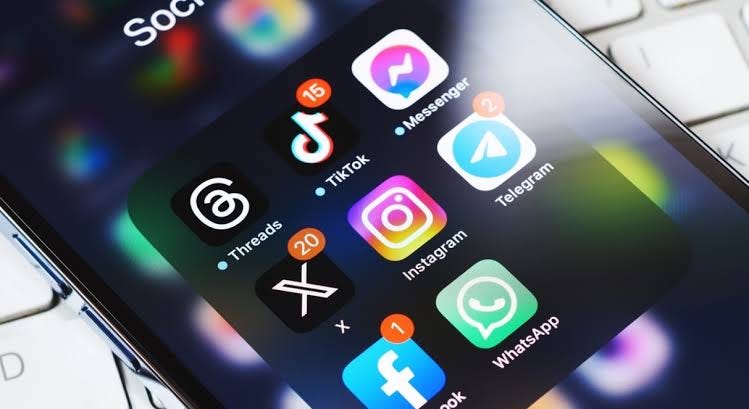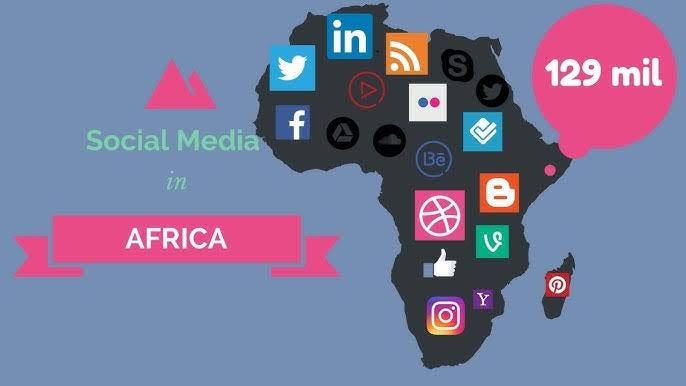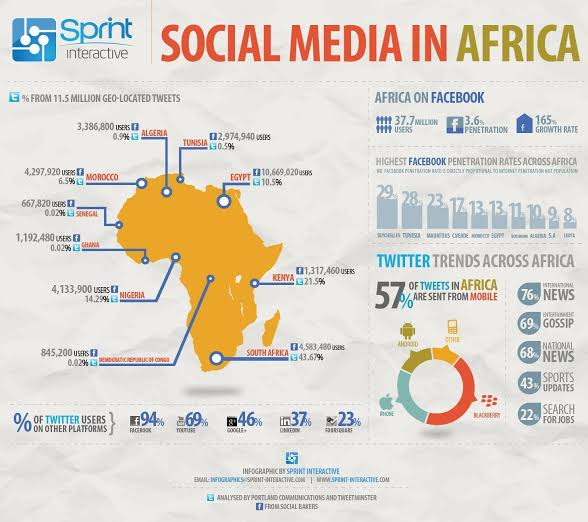Social Media in Africa: Opportunities, Challenges, and New Frontiers
Despite making up only 8% of the global social media user base, Africa's 384 million active users signify more than just a number—they represent a growing force influencing culture, commerce, and politics. This rapid rise is powered by improving internet infrastructure and widespread smartphone access, drawing young Africans into digital spaces that blend news, social connections, and entertainment.
Africa’s Digital Awakening
Young Africans, with their keen sense for connectivity, are the catalysts of the continent’s social media boom. As infrastructure develops, particularly in northern and southern Africa, the allure of platforms such as Facebook and TikTok intensifies. A recent GeoPoll survey covering social media users in Ghana, Kenya, and South Africa underscored Facebook’s stronghold with an impressive 82% active engagement rate, while TikTok followed closely at 60%, reflecting its meteoric rise globally and on the continent. Instagram, X (formerly Twitter), LinkedIn, and Snapchat also maintain significant followings, each offering distinct avenues for users to express themselves and engage with content.
In nations like Nigeria, where people spend an average of nearly four hours daily on social platforms, social media has become intertwined with daily life, embodying a digital culture that is both influential and transformative. This shift presents a lucrative prospect for tech giants eyeing untapped growth areas and for businesses hoping to leverage these platforms to reach a digitally connected population.
Digital Advertising and Social Commerce
As more Africans join social media, brands have recognized its value as a tool for targeted advertising and consumer engagement. Consultancy firm PwC projects a sharp increase in digital advertising across Africa, with South Africa expected to see digital ads comprising nearly 64% of total ad spend by 2027. The reasons are clear: social media offers unparalleled access to rich data that helps marketers craft precise, personalized campaigns that resonate with audiences.
Social commerce has gained momentum as well, revolutionizing how African businesses approach e-commerce. Without significant investments in IT infrastructure, companies can use social media as a gateway to online sales. Social media platforms now enable direct shopping features, transforming browsing into buying and allowing businesses to test and refine their strategies with minimal risk.
Influencers at the Helm of Engagement
An exciting aspect of Africa’s social media boom is the rise of influencer culture. Initially dismissed as superficial, influencing has become a viable career path. African influencers leverage their extensive reach to form partnerships with brands, engaging audiences in ways traditional advertising often cannot. Nigerian-South African content creator Foyin Ogunrombi, with over 21,000 Instagram followers, highlights the intricate reality of content creation: the demanding nature of ideation, production, and editing that goes beyond mere appearances.
Yet, despite growing recognition, influencers in Africa face challenges, particularly around financial sustainability. While platforms like Instagram and TikTok have introduced monetization programs, creators often rely on brand partnerships to make a living. This blend of entrepreneurial spirit and creative expression showcases the innovative ways African content creators are reshaping the continent’s digital economy.
Political Impact and Civic Engagement
Social media’s influence extends beyond commerce; it has become an essential tool for civic engagement and political activism in Africa. Movements like Nigeria’s #EndSARS illustrated how platforms could amplify voices, mobilize millions, and draw international attention to critical issues. Social media has democratized information flow, enabling ordinary citizens to challenge the status quo, advocate for human rights, and demand accountability.
However, this freedom comes with challenges. The spread of misinformation and disinformation has raised alarms, particularly as political actors use social media for their agendas. Research indicates that misinformation has flourished, with the Africa Centre for Strategic Studies reporting a fourfold increase in disinformation campaigns since 2022. Notably, foreign powers such as Russia and China have been implicated in orchestrating many of these campaigns, signaling the geopolitical stakes involved.
Navigating Risks and Regulations
The dual nature of social media as a force for good and a potential risk has drawn the attention of African regulators. Efforts to curtail harmful content, safeguard data privacy, and regulate platforms have been met with mixed reactions. Advocates argue that measures are necessary to protect users from cyberbullying, hate speech, and the spread of false information. However, there is concern that these regulations could be misused to stifle free expression, particularly by authoritarian regimes seeking to silence dissent.
The challenges of regulation also extend to the labor force supporting social media’s backbone—content moderators. Recent lawsuits in Kenya against Meta have exposed the toll that moderation takes on workers, who often endure poor conditions and emotional distress due to prolonged exposure to harmful content. These cases underscore the need for improved support and fair practices for those tasked with ensuring safer digital environments.
The Road Ahead
Finding a balance between fostering innovation and protecting public interests will require collaborative efforts from tech companies, policymakers, and civil society. The path forward must safeguard the benefits social media brings to African economies and cultures while addressing the challenges that come with it.







